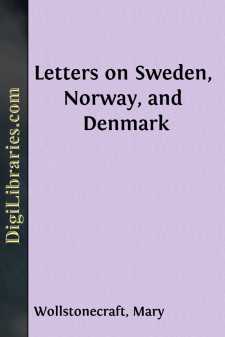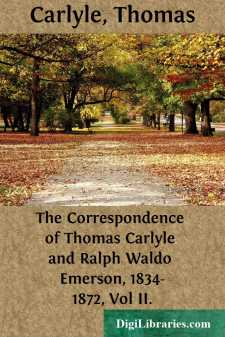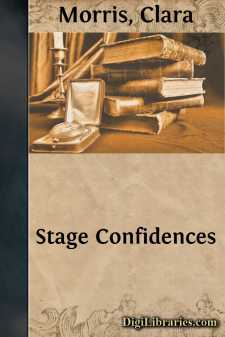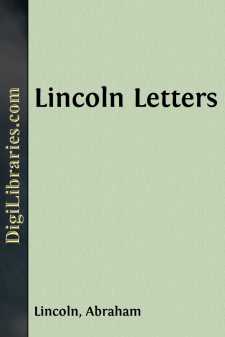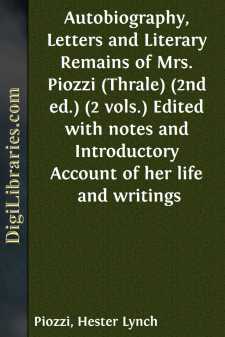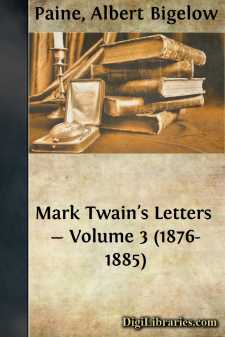Literary Collections
- American 84
- Ancient, Classical & Medieval 14
- Asian 1
- Australian & Oceanian 1
- Canadian 55
- Continental European 121
- English, Irish, Scottish, Welsh 179
- Essays 160
- General 24
- Letters
- Middle Eastern 1
Letters Books
Sort by:
INTRODUCTION. Mary Wollstonecraft was born on the 27th of April, 1759. Her father—a quick-tempered and unsettled man, capable of beating wife, or child, or dog—was the son of a manufacturer who made money in Spitalfields, when Spitalfields was prosperous. Her mother was a rigorous Irishwoman, of the Dixons of Ballyshannon. Edward John Wollstonecraft—of whose children, besides Mary, the...
more...
by:
Thomas Carlyle
CORRESPONDENCE OF CARLYLE AND EMERSON LXXVI. Emerson to Carlyle Concord, 1 July, 1842 My Dear Carlyle,—I have lately received from our slow friends, James Munroe & Co., $246 on account of their sales of the Miscellanies,—and I enclose a bill of Exchange for L51, which cost $246.50. It is a long time since I sent you any sketch of the account itself, and indeed a long time since it was posted,...
more...
by:
Clara Morris
CHAPTER I A WORD OF WARNING Every actress of prominence receives letters from young girls and women who wish to go on the stage, and I have my share. These letters are of all kinds. Some are extravagant, some enthusiastic, some foolish, and a few unutterably pathetic; but however their writers may differ otherwise, there is one positive conviction they unconsciously share, and there is one question...
more...
by:
Robert Burns
BURNS'S LETTERS. It is not perhaps generally known that the prose of Burns exceeds in quantity his verse. The world remembers him as a poet, and forgets or overlooks his letters. His place among the poets has never been denied—it is in the first rank; nor is he lowest, though little remembered, among letter-writers. His letters gave Jeffrey a higher opinion of him as a man than did his poetry,...
more...
by:
Abraham Lincoln
Washington, Dec. 24th, 1848. My dear father:— Your letter of the 7th was received night before last. I very cheerfully send you the twenty dollars, which sum you say is necessary to save your land from sale. It is singular that you should have forgotten a judgment against you; and it is more singular that the plaintiff should have let you forget it so long, particularly as I suppose you have always...
more...
INTRODUCTION: Dr. Johnson was hailed the colossus of Literature by a generation who measured him against men of no common mould—against Hume, Robertson, Gibbon, Warburton, the Wartons, Fielding, Richardson, Smollett, Gray, Goldsmith, and Burke. Any one of these may have surpassed the great lexicographer in some branch of learning or domain of genius; but as a man of letters, in the highest sense of...
more...
My Dearest Carreta, I arrived this day at Venice, and though I am exceedingly tired I hasten to write a line to inform you of my well-being. I am now making for home as fast as possible, and I have now nothing to detain me. Since I wrote to you last I have been again in quarantine for two days and a half at Trieste, but I am glad to say that I shall no longer be detained on that account. I was...
more...
by:
Horatio Nelson
LETTER XL. Victory, under Majorca, January 13th, 1804. MY OWN DEAR BELOVED EMMA, I received, on the 9th, your letters of September 29th, October 2, 7, 10, 12, 17th, November 5th, 8th, to the 24th: and I am truly sensible of all your kindness and affectionate regard for me; which, I am sure, is reciprocal, in every respect, from your own Nelson. If that Lady Bitch knew of that person's...
more...
by:
Horace Walpole
Letter 1 To George Montagu, Esq.Arlington Street, Nov. 17, 1759. (page 25) I rejoice over your brother's honours, though I certainly had no hand in them. He probably received his staff from the board of trade. If any part of the consequences could be placed to partiality for me, it would be the prevention of your coming to town, which I wished. My lady Cutts(1) is indubitably your own grandmother:...
more...
The Monday Evening Club of Hartford was an association of most ofthe literary talent of that city, and it included a number of verydistinguished members. The writers, the editors, the lawyers, andthe ministers of the gospel who composed it were more often than notmen of national or international distinction. There was but onepaper at each meeting, and it was likely to be a paper that wouldlater find...
more...


